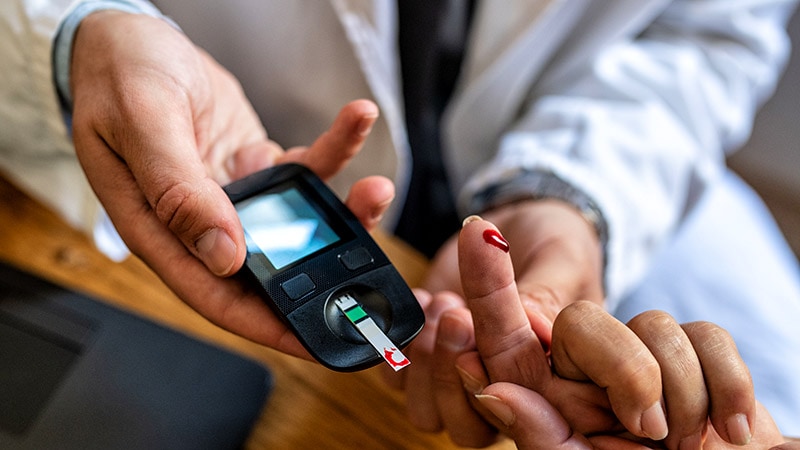Takeaway
- Adding empagliflozin to a range of blood glucose-lowering regimens for type 2 diabetes (T2D) reduces risk for major adverse cardiovascular events (MACE), heart failure hospitalisation, and chronic kidney disease progression.
Why this matters
- Previously described cardiovascular (CV) and renal benefits of empagliflozin, a potent and selective sodium-glucose cotransporter 2 inhibitor, do not differ depending on a patient's baseline glucose-lowering therapy.
Study design
- Researchers in this phase 3 clinical trial studied patients with T2D with established CV disease treated with metformin, sulfonylurea, or insulin alone or in combination (N=7020; 71.5% men; mean age, 63.1±8.6 years), randomly assigning them to receive daily empagliflozin 10 mg, empagliflozin 25 mg, or placebo.
- Funding: Boehringer Ingelheim Pharmaceuticals; Eli Lilly and Company.
Key results
- Empagliflozin reduced risks for CV death, heart failure hospitalisation, 3-point MACE, and all-cause mortality vs placebo regardless of metformin, sulfonylurea, or insulin use at baseline (P>.05).
- Empagliflozin reduced the risks for incident or worsening nephropathy vs placebo regardless of sulfonylurea or insulin use at baseline (Pinteraction>.05).
- Nephropathy risk was lower for patients not using vs using metformin at baseline (HR, 0.47 vs HR, 0.68; Pinteraction=.01).
Limitations
- The trial was not specifically designed or powered for subgroup analysis by baseline therapy.
References
References



